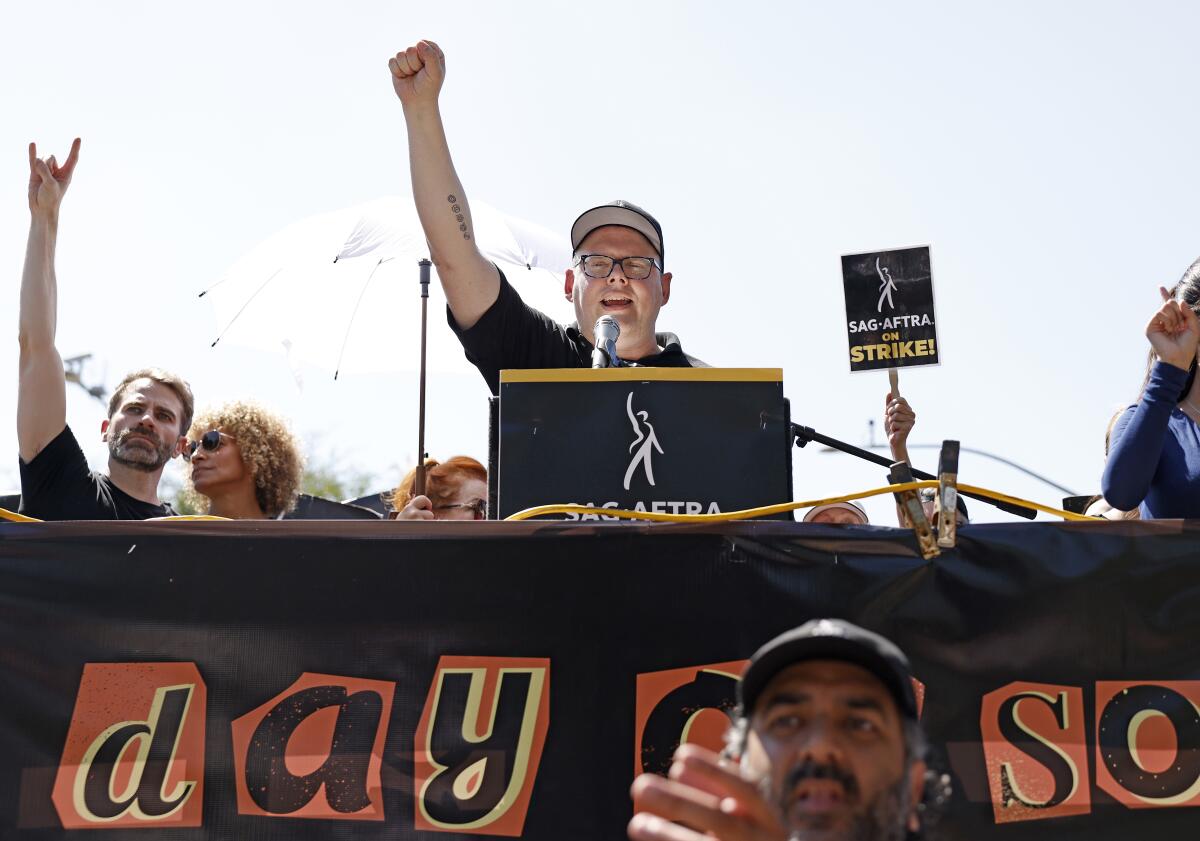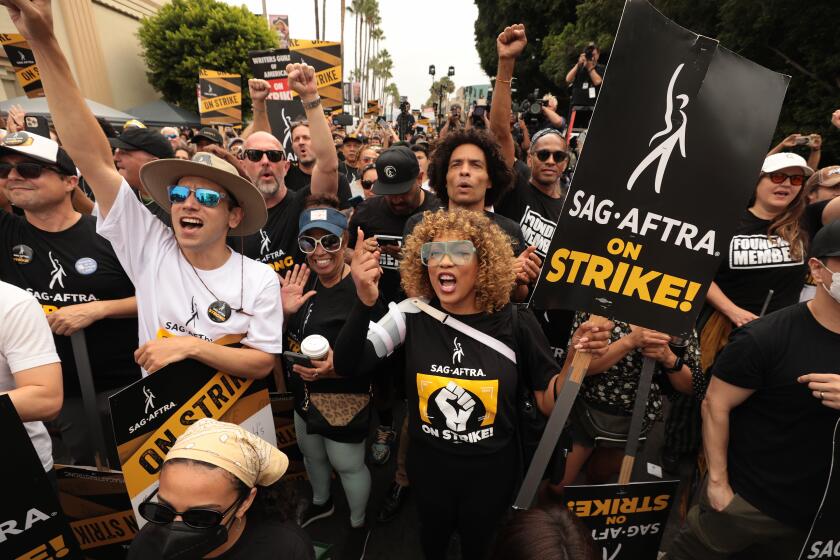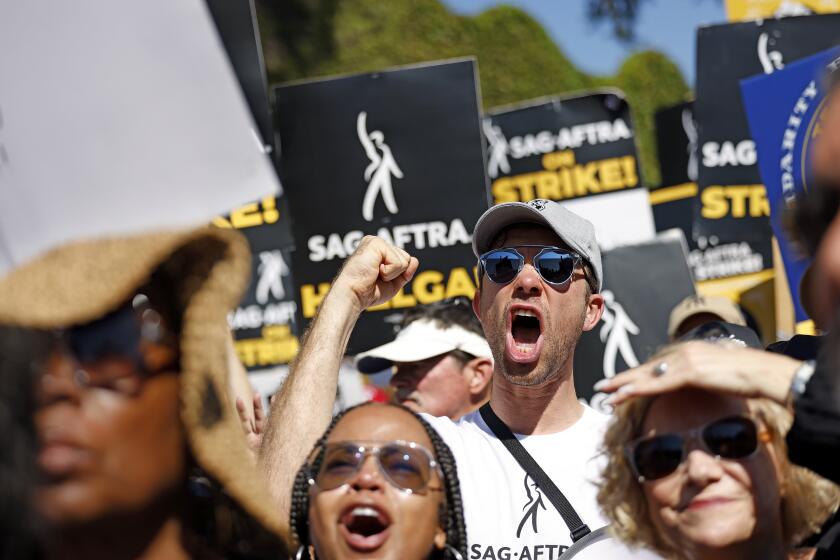Video game performers move closer to strike as SAG-AFTRA negotiations stall over AI

- Share via
Video game actors are inching closer to a walkout as performers union SAG-AFTRA and the top video game companies struggle to reach a deal on contract terms related to artificial intelligence.
The Screen Actors Guild-American Federation of Television and Radio Artists announced over the weekend that its national board has granted its national executive director and chief negotiator, Duncan Crabtree-Ireland, the authority to call a strike if the union cannot obtain a settlement with the companies.
The announcement comes nearly a year after more than 30,000 union members voted 98% in favor of authorizing a strike while bargaining for a new Interactive Media Agreement.
The contract expired in November 2022 and covers about 2,600 performers doing voice and motion-capture work in the video game industry.
SAG-AFTRA has been negotiating its video game contract, or Interactive Media Agreement, for nearly a year. The authorization vote doesn’t initiate a strike.
“Our resolve is unwavering and should not be tested,” Crabtree-Ireland said in a statement.
“We are steadfast in our commitment to our membership who work this contract and whose extraordinary performances are the heart and soul of the world’s most popular video games. Time is running out for the companies to make a deal.”
Crabtree-Ireland pressured video game producers to bring forth an offer that includes significant gains for performers, especially in the realm of AI. Game performers contend that they are particularly vulnerable to AI because many of them specialize in voice-over work.
“We are continuing to negotiate in good faith and have reached tentative agreements on the vast majority of proposals,” Audrey Cooling, a spokesperson for the video game producers, said in a statement.
“Based on that progress, we remain optimistic that a deal is within reach.”
The latest move by SAG-AFTRA comes about a year after TV and movie actors staged a strike that lasted 118 days. AI was also a major sticking point in that labor dispute.
If approved by union members, the tentative contract would end a strike that lasted nearly four months and shut down Hollywood film and TV productions.
The last time game actors went on strike was in October 2016.
Video game workers are seeking a contract that would require producers to get their consent before reproducing their voices or likenesses with AI. They are also demanding compensation when AI is used to replicate their performances.
Additionally, the performers are looking for wage increases to keep up with inflation, more rest time and set medics for stunts and hazardous jobs.
Former Times staff writer Sarah Parvini contributed to this report.
More to Read
Inside the business of entertainment
The Wide Shot brings you news, analysis and insights on everything from streaming wars to production — and what it all means for the future.
You may occasionally receive promotional content from the Los Angeles Times.













